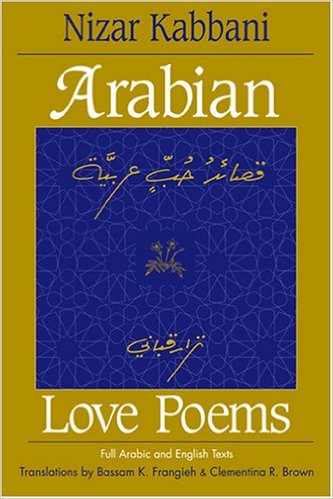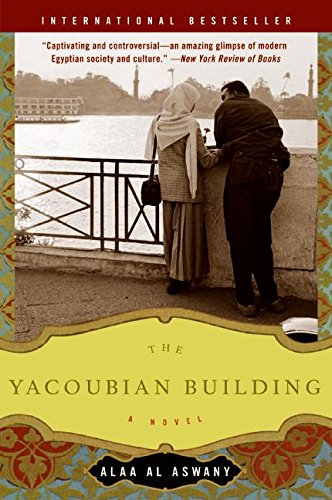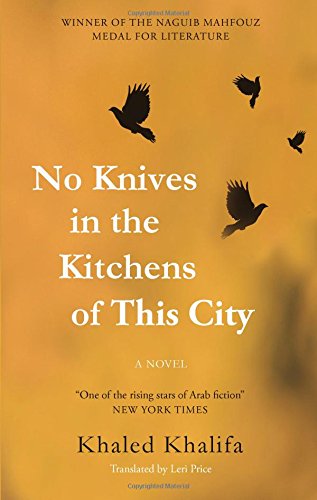Louisa Ermelino is the Reviews Director at PW and her most recent book, Malafemmena (Sarabande), is a collection of stories, many of them set in the Middle East and Asia. Ermelino shares some of her favorite books by Arab writers.
I’ve always been drawn to other cultures, other countries, other languages and early on was addicted to literature in translation. My interest has moved beyond European and Russian classics, thanks to the excellent translations available from languages all over the world. Arabic has been a particular passion of mine for a while and the Middle East and Islam have never been more in the news since Trump became president. If every cloud has a silver lining, then let’s consider the renewed interest in Arab literature. This is a small list, and a personal one, but what resonates as I look it over is how beautifully tragedy and displacement are presented and processed through art, and how even the more light-hearted selections tell an important and serious story.
1. The Silence and the Roar by Nihad Sirees, trans. from the Arabic by Max Weiss
This novel was handed to me by the publisher, which doesn’t happen as often as you might think, and I was so staggered by it that I interviewed the author, who was at Brown University for a literary residence. Powerful, funny, life-affirming, and one of PW’s 10 best books of 2013, it follows a writer in an unnamed country whose work is banned (the silence) by the repressive regime, as he moves through the city trying to reach the women in his life during a rally (the roar) for the “Leader.” Prescient when it was first published in English and more timely than ever, the author, who has been compared to Kafka and Orwell, is a Syrian exile living in Berlin. How does an author survive being silenced? Sirees answered that question in an interview: "There is always a solution. The best ones are love, sex and humour."
2. The Arab of the Future: A Childhood in the Middle East: 1978-1984 by Riad Sattouf
A bestseller in France, the Paris-based cartoonist’s first book in English recounts growing up in Gaddafi’s Libya, Assad’s Syria, and his mother's native France. The image of Sattouf as a small boy with flowing blond hair and an expression of wonder and perplexity will win you over before the story even starts. Sattouf uses clean images and simple language to capture the innocence of childhood. There’s no judgement, just an unlikely childhood under a series of dictators, his Syrian pan-Arabist professor father being one of them. Sattouf’s experiences form a touching and droll portrait of the Middle East seen through the eyes of a little boy. After you’ve finished this, the second, The Arab of the Future 2: 1984-1985, awaits.
3. The Lovers of Algeria by Anouar Benmalek, trans. from the French by Joanna Kilmartin
I read this in 2004. It was a review assignment, which often leads to dutiful reading, but this one was a pure pleasure. I have never forgotten it, and, trust me, I forget everything. Set in Algeria, it’s a twisting, expansive, heart-wrenching novel of the terrors of that country’s past and the present, from the National Liberation Front who fought for independence from the French to the fundamentalist “forces of Allah.” An elderly Swiss woman, a former circus trapeeze artist, enlists a nine-year-old boy living on the streets to find the graves of her children and search for their father, her lover, from 40 years ago. Brutality reigns: "The devil has entered our country, and his footprints are everywhere." There are no good guys here, but again, love conquers politics.
4. The Corpse Exhibition: And Other Stories of Iraq by Hassan Blasim, trans. from the Arabic by Jonathan Wright
We’ve started to see novels and memoirs from participants in the Iraq War but these 14 surreal stories, told from the Iraqi perspective, are as seductive and fascinating as fairy tales and as shocking as the bloodiest images of war. Blasim, an Iraqi exile living in Finland, is a poet and filmmaker with a stunning imagination. In the title story, a man interviewing for a job as an assassin learns that the dead bodies must be displayed in artistic configurations. Journalists, urchins, criminals exist alongside prophets and angels, ghosts and jinnis. War is everywhere and affects everyone, from garbagemen and extortionists to the refugees who make it to Europe. In one story, radio show contestants try to outdo each other with horrific tales: “If I told my story to a rock, it would break its heart”--which could be said about every story in this collection, listed as one of PW’s top 10 books of 2014.

5. Arabian Love Poems by Nizar Kabbani, trans. from the Arabic by Bassam K. Frangieh and Clementina R. Brown
I don’t remember how I first found Kabbani. I must have been in love. And love is never better served than with poetry. No one comes close to Kabbani when it comes to love poems. Pablo Neruda can just move over. This first English-language collection of his work, beautifully translated, contains Kabbani’s handwritten Arabic text. The poet was an advocate of women’s rights and the rights of women over their own bodies and is the most popular poet in the Arab world.
I want to write different words for you
To invent a language for you alone
To fit the size of your body
And the size of my love.
6. City of Jackals by Parker Bilal
This fifth installment in the Makana mystery series should send you back to the first four. I first read Bilal, the pseudonym of Jamal Mahjoub, who was born in London and raised in Khartoum, Sudan, because his books are set in Cairo. I’m not much of a mystery fan, but I'm a big fan of Cairo and Bilal takes full advantage of the city setting to enhance the story. This mystery takes place in 2005, after the election of Mubarak and protests by South Sudanese refugees. The Sudanese detective Makana is sympathetic, honest in the midst of corruption, sad (he has a tragic past) and living on an old houseboat on the Nile. Entertaining and exciting but also revealing, the series spins yarns while exposing the reality that Egypt is not all tombs and Pharaohs.

7. The Yacoubian Building by Alaa Al Aswany trans. from the Arabic by Humphrey Davies
This is one of my favorites, the intertwining stories of the occupants of a Cairo apartment building that--while once a luxury address and example of art deco architecture--has seen better days, with its rooftop storage units now housing immigrants. It’s 1990 and the lives of Aswany’s characters come together in an evocative portrait of modern Egyptian society. They are all endlessly fascinating: the fading aristocrat, a sucker for lush women, the gay journalist who seduces an unwitting and handsome policeman from Upper Egypt, the young woman victimized by a predatory boss. Aswany is still a practicing dentist in Cairo; he has said it keeps him close to the people, which is obvious in this remarkable novel. Aswany does for Cairo what Carlo Emilio Gadda does for Rome in That Awful Mess on the Via Merulana.
8. Confessions by Rabee Jaber trans. from the Arabic by Kareem James Abu-Zeid
When Jaber won the International Prize for Arabic Fiction (the Arab Booker) in Abu Dhabi, I don’t think I’ve ever seen a less affected author. He’s written 18 novels but is not well-known in the West, although he deserves to be. This novel is set during the Lebanese Civil War, where a small boy, the only survivor of the murders of a car full of people at a roadblock, is adopted by one of the assassins. The boy’s story is one of war, in his country and in his heart, and from the first sentences, we know that he is aware of his father’s deeds. “My father used to kidnap people and kill them. My brother says he saw my father transform, during the war, from someone he knew to someone he didn’t know.”

9. No Knives in the Kitchens of This City by Khaled Khalifa, trans. from the Arabic by Leri Price
The list began with a novel by a Syrian writer from Aleppo and this last on the list is a novel by another Aleppian. Khalifa portrays his native city under the grip of the Assad regimes though the lives of one family over three generations. The narrator is born a few days before the 1963 coup, not a good omen. The story shifts in time and between characters, but Aleppo as a character is a constant, its culture and cuisine, a city with a vibrant life. Khalifa, in lush and sensual prose, chronicles the collapse of the city: “Cities die, just like people.” My Arab tutor gave me this book the last time I saw him. He was a graduate student when we started, now he’s a professor who no longer lives in New York. We get together when he visits and he always brings me a book. A Palestinian born in Syria and a new American, we were studying together through the Arab Spring and the beginnings of the protests in Syria. He was so hopeful.
Correction: Due to an editing error, this list originally included an extraneous title that has since been removed.








